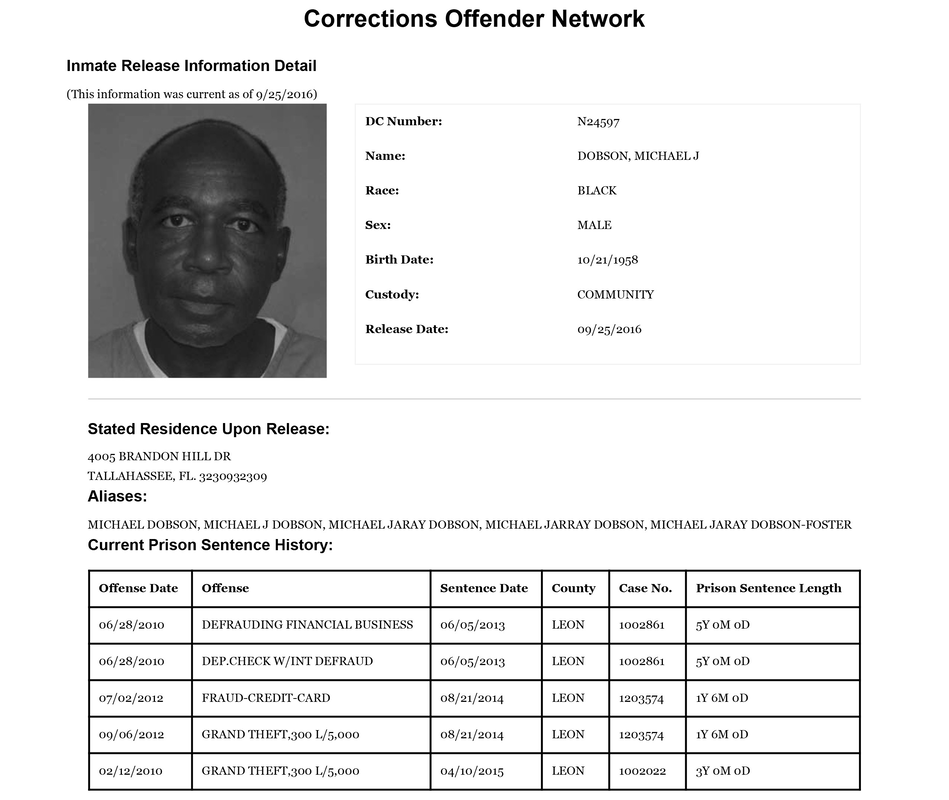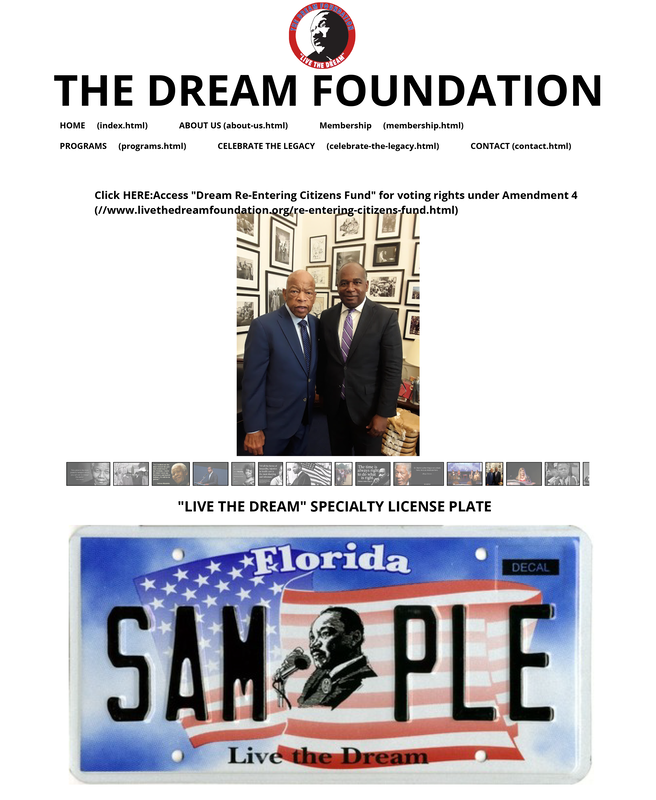 A Berkshire foodbank said it was "worried" about getting enough donations in January. Annette Medhurst, manager at Wokingham Foodbank, said she hoped the donations during the Christmas period would help the decrease in donations in January during the "quieter period". According to the foodbank there has been an increase of more than 90% in referrals since 2019. Ms Medhurst added: "Donations will definitely drop, we hope that the things we have got in during the run-up to Christmas will help see us through." Ms Medhurst said that more people get referred to the foodbank in the New Year. She said: "We get a lot of donations during harvest festival and in the run-up to Christmas, those donations really help see us through the quieter times. "This time of year, we get a lot of donations from schools and businesses but donations will drop definitely in January. "We couldn't do what we do without the donations from our community." Peter Woodman, from Bracknell Foodbank, said it was "very busy during the festive period". "We see people coming in, you can see how distressed they are and you just welcome them," he said. "You explain things to them and you have professional people who help you there." Lucy Martin, operations manager at Wokingham Foodbank, explained that volunteers had been helping to sort through the donations and "putting them into different sections in the warehouse" to prepare for quieter times.
She said: "Sorting donations involves putting them into different sections and areas so they know how many trays of pasta they've got, or rice, and we also have to date them. "We never have food that's gone out of date, we rotate the stock and know what needs to be used next." She said they were hopeful there was enough food but donations were "always needed".
0 Comments
 A record 9.3 million people - including one in five children - are facing hunger and hardship in the UK, according to an anti-poverty charity. This is one million more than five years ago, Trussell said in a new report. Trussell has 1,400 food bank locations, supported by 36,000 volunteers, 12,000 churches, 100,000s of community groups and schools, and millions of people around the UK. The charity said almost a quarter of children under four face hunger and hardship, making them the age group most at risk. Unless changes are made by the government, a further 425,000 people, including 170,000 children, are projected to fall into this category by 2027, it said. A government spokesperson told the BBC that "no child should be in poverty". The report, The Cost of Hunger and Hardship, was published on Wednesday. Trussell worked with economic and public policy experts WPI Economics to analyse government data. It found that one in seven people across the UK face hunger and hardship and one in five children are growing up under these circumstances. This means that 46% more children are facing hunger and hardship than two decades ago. More than half of people currently facing hardship are living in a disabled family, the report said. Trussell said a total of 32% of people in single-parent families face hunger and hardship, and children under four face the highest risk of being in this situation of any age group at 24%. Having employment is not a reliable route out of hardship, the report concluded, with 58% of people facing hunger and hardship living in a family where someone is working. The rate of hunger and hardship is highest for people living in Black, African, Caribbean, or Black British families at 28%, compared to 11% for people living in White families, the report said. The charity is calling on the government to ensure that Universal Credit always covers the basic necessities. It also called for the Local Housing Allowance to be kept in line with affordable local rents. Scrapping the two-child benefit cap would also reduce the number of people facing hunger and hardship by 9%, or 825,000 people, it said. Helen Barnard, director of policy, research and impact at Trussell, said one in seven people facing hunger and hardship "should not be the case in one of the richest countries in the world". "We need urgent action on hunger in the UK because, if nothing changes, the number of people facing hunger and hardship will only increase," she said. "People are turning to food banks because they don’t have enough money to live on. But we know it doesn’t have to be this way." A government spokesperson said it was "taking action" through a new Child Poverty Taskforce, which is "developing an ambitious strategy to give children the best start in life".
"Alongside this, we have extended the Household Support Fund to support the most vulnerable this winter and have committed to reviewing Universal Credit while we deliver on our plan to tackle inequality and make work pay to deliver opportunity across Britain," the spokesperson said.  Michael Dobson, the CEO of the Tallahassee-based Dream Foundation, Inc., which receives funding from the State of Florida through the Martin Luther King Jr. 'Live the Dream' specialty license plate, has been charged with stealing from the nonprofit organization. Michael Dobson, a longtime local political consultant and nonprofit manager, has allegedly stolen $153,146.00 between July 1, 2020, and April 1, 2023. The money came from Florida residents, who pay a $25 annual fee for the specialty license plate. Michael J. Dobson, 65, was arrested on a charge of resisting an officer without violence and was then rearrested on the grand theft charges. After weeks in jail, he was released from Leon County Detention Facility, the Sheriff's Office website shows, after Circuit Judge Tiffany Baker-Carper this week OK'd him to be on pre-trial release. According to state records, Dobson served multiple short stints in jail starting in 1990, and later served multiple years-long sentencings in prison starting in 2013. Most of the charges are clustered in the early 1990s and early 2010s. However, he continued to work with the Florida Legislature. The Florida Highway Safety and Motor Vehicles Department's inspector general's office completed an audit in March 2023 of the Dream Foundation's "Live the Dream" license plate, featuring a likeness of Dr. King, and found that "money received by the foundation was illegally misappropriated" by Dobson. The audit is not complete for the subsequent year as he did not have to file the report. In the last legislative session, the 'Live the Dream' specialty license plate distribution of funds was amended and redirected (CS/CS/HB 403)to the Historical Resources Operating Trust Fund to support the Historic Cemeteries Program. The funds are to be utilized to research, identify, and record abandoned African-American cemeteries and provide grants to eligible entities. 5% will still be paid to the Martin Luther King, Jr. Center for Nonviolent Social Change, Inc., also known as The King Center, as a royalty for the use of the image of Dr. Martin Luther King, Jr on the license plate. Over the past 5 years, Dobson had crafted various bills which were subsequently approved by the state legislature and Governor Ron DeSantis, which redirected funds that could be used for his organization's own non-profit purposes. Separate bills saw the use of funds distribution amended from March of Dimes, Healthy Start Coalition and Sickle Cell to going directly to the nonprofit controlled by Dobson with 8% for "assisting inmates released from custody of a county jail in this state or a Department of Corrections facility in successfully reentering the community," and "at least 15%" for "as grants for programs and services throughout this state which assist inmates released from the custody of a county jail in this state or a Department of Corrections facility in successfully reentering the community." With a further 20% for scholarships of graduating high school seniors in this state who have at least one parent or legal guardian who is incarcerated." A portion of these amendments were filed by Representative Dr James Bush, III, a retired teacher who served in the House from 1992-2000, 2008 and then 2018 and Senator Keith Perry, CEO of Perry Roofing Contractors, who served in the House from 2010-2016 and in the Senate from 2016. In 2008, Dobson was reprimanded by the House of Representatives for "fraudulent representation before a House Committee." Michael Dobson agreed to pay back $20,000 to a client who hired him to win legislative passage of a new license plate. Dobson was registered to lobby the Florida Legislature for 10 clients, including the Capitol City Chamber of Commerce and several bio-fuel and renewable energy groups, some of which he was the CEO and founder, including the Florida Renewable Energy Producers Association. Panama City Rep. Jimmy Patronis filed a complaint with the House that Dobson was lobbying for a client without registering the name with the Legislature. House General Counsel Jeremiah Hawkes determined the Panama City Marine Institute signed a $40,000 contract with Dobson's firm in July 2007 to win passage of the tag. Dobson later testified for bills creating the "Horse Country" and an "I Believe" license plate in March without registering to lobby for PCMI, according to Hawkes' investigative report. Hawkes' findings also suggested Dobson violated a House rule by fabricating information in a survey of the number of motorists likely to buy the tag that was submitted to the House Infrastructure Committee. Florida law requires backers of specialty tags to submit a "scientific sample survey" showing that at least 30,000 motorists are likely to buy the tag, which would devote a portion of the revenues generated to special causes. The committee's chairman, Tampa Bay Rep. Rich Glorioso, told Hawkes he had repeatedly told Dobson that the surveys for both tags "were defective." "These violations are not de minimus," Hawkes wrote to House Speaker Marco Rubio. "Mr. Dobson has been a registered lobbyist for years and is aware of the requirements to lobby. Dobson was given an opportunity to respond to this investigation, and failed to do so." The agreement called for a one-year ban from lobbying if he failed to repay the Institute the $20,000 by the following spring. He must also go back and file compensation reports reflecting the contract. According to the Lobbyist disclosure Reports, he did not.
According to the Tallahassee Democrat, John Lynch, Dobson's assigned public defender, said his client is presumed innocent until proven guilty and declined further comment: "I'm really not at liberty to discuss any sort of defense strategy at this point," Lynch said. The Tallahassee Democrat was made aware of the case by a political candidate that Dobson has been advising. That person, who asked to be unnamed, said Dobson told her he thinks that he is being pursued criminally now because of his affiliation with the Democratic Party and for the diversity, equity and inclusion conferences he organizes. He also told her he missed his court date because of mail service issues and he didn't get the summons on time. He did not comment on the allegedly stolen funds. Law enforcement got a warrant for Dobson's arrest in September, but took until December to locate him and take him into custody. According to a probable cause affidavit, Dobson was spotted by police walking between the Golden Corral and Masa restaurants on North Monroe Street. "I exited my patrol car in full uniform and called out 'Mr. Dobson!' as he was ahead of me," the report says. "I then called out 'Mr. Dobson, I need you to stop!' and as I was telling him to stop several times, he began to pick up his pace." Dobson allegedly darted into traffic where he ran across the busy roadway to the Cottages at Lake Ella. Officers finally caught him inside the kitchen of the American Legion hall, the report said. Over the last 34 years, Michael Dobson has been charged with various misdemeanors, such as passing worthless bank checks, as well as felony charges of fraudulent use of credit cards, bank fraud and grand theft, court dockets show. He had a case management hearing on Feb. 6, court dockets show. Additional Source: Tallahassee Democrat, Elena Barrera [email protected]. Follow her on X @elenabarreraaa. A few days before the official national celebration of Dr. Martin Luther King Day, Florida officials have blocked the introduction of a new advanced-level high school course that teaches African American history. Ron DeSantis has been assembling a record on hot-button conservative issues that could form the core of a presidential campaign later this year. He repeatedly criticized government mandates to control the spread of Covid-19 and has expanded his attacks to include the development of the coronavirus vaccines. He railed against big corporations, including Disney, for catering to liberal interests and ideologies. He's accused social media companies of bias against conservatives. His pitch to primary voters is that he is the Republican who takes real action on conservative concerns- the kind of culture-war red meat that is a staple on right-wing media outlets. Governor Ron DeSantis' administration said the proposed course "lacks educational value and is contrary to Florida law".
The course is being rolled out in a pilot program by the US College Board to 60 high schools across the country. Officials did not specify what law the course breaks. The Florida Department of Education outlined its intent to block the course in a 12 January letter to the College Board, writing that the course violates state law. "In the future, should the College Board be willing to come back to the table with lawful, historically accurate content, (the Department of Education) will always be willing to reopen the discussion," the letter said. The Advanced Placement (AP) African American studies course is the College Board's first new class since 2014. It is set to cover more than 400 years of African American history, touching on topics like literature, political science and geography. The course is part of a broader AP program in US high schools, which gives students the chance to take college-level courses before graduation. A statement by a spokesperson for Florida's Republican governor DeSantis said the course "leaves large, ambiguous gaps that can be filled with additional ideological material, which we will not allow". "If the College Board amends the course to comply, provides a full course curriculum, and incorporates historically accurate content, then the Department will reconsider the course for approval," said spokesperson Bryan Griffin in a statement to media. In response, the College Board said the course is "undergoing a rigorous, multi-year pilot phase, collecting feedback from teachers, students, scholars and policymakers". "We look forward to bringing this rich and inspiring exploration of African-American history and culture to students across the country," the board said. The decision to block the African American studies course has been met with outrage from the National Parents Union, who said the ban is a "direct attack on the Black and all (Black, Indigenous and Persons of Colour) communities". "This behavior is dangerous and should concern every American," the organization said, adding they will challenge the decision. The ban was also criticized by Florida's state senator and Democrat Shevrin Jones, who wrote on Twitter that other AP courses, like European History and several language and culture courses, are still being taught in the state. "It's crazy how AP African-American studies made the chopping block in FL," Mr Jones wrote. Last year, Gov DeSantis passed a "Stop WOKE" act that regulates how lessons on race and gender are taught in Florida schools. "In Florida, we are taking a stand against the state-sanctioned racism that is critical race theory," Mr DeSantis said, citing the academic framework that denotes the existence of systemic racism in American society. However, one of the developers of the AP African American studies course had previously told Time magazine that the class does not teach "critical race theory". Rather, Henry-Louis Gates Jr, a leading scholar on African American history in the US, said the course "is a mainstream, rigorously vetted, academic approach to a vibrant field of study".  Former U.S. Rep. David Rivera, a well-connected Florida Republican, has been arrested on federal charges that include failing to register as a foreign agent. The case centers on Rivera's signing of a $50 million contract with Venezuela's government in early 2017, and his subsequent attempts to thaw Venezuela's icy relationship with the U.S. "Law enforcement officers arrested David Rivera" in Atlanta on Monday, the U.S. Attorney's Office in the Southern District of Florida told NPR via email. Rivera appeared in court before a federal magistrate judge, the office said, adding that a federal grand jury had indicted him on Nov. 16. The newly unsealed criminal indictment accuses Rivera of using his ties to members of Congress and former President Donald Trump's White House in attempts to broker U.S. deals with the regime of Nicolás Maduro. Accused along with Rivera is Esther Nuhfer of Miami-Dade County, a political consultant and lobbyist with longstanding ties to Rivera. In early 2017, Rivera signed a consultancy contract with PDV USA, the U.S. subsidiary of Venezuela's state-controlled oil company, according to court documents. On the Venezuela side, the deal took place on the order of Delcy Rodriguez, a high-ranking executive in the state oil firm who was also then the minister of foreign affairs (she later became Venezuela's vice president). The contract called for Interamerican, a company Rivera operated out of his home, to receive five payments of $5 million followed by a final payout of $25 million — all over the course of just three months, according to the federal indictment. But the timeframe covered by the deal extended well into 2018. Venezuela wanted Rivera to lobby politicians to build support for normalizing its relationship with the U.S., to help resolve a contentious trade issue with a U.S. oil company, and allow Maduro's regime and relatives to avoid a new round of sanctions, the indictment states. Rather than registering as foreign agents, the court filing says, Rivera and Nuhfer sought to "unlawfully enrich themselves" while influencing U.S. policy toward Venezuela and presenting themselves as consultants for the Venezuelan oil company's U.S. affiliate rather than agents of the country's government. The federal indictment doesn't divulge the names of several key U.S. officials who are said to have repeatedly met or communicated with Rivera about Venezuela's interests. Two lawmakers, for instance, are dubbed "U.S. Congressman 1," from Texas, and U.S. Senator 1," from Florida. In emails and encrypted text messages, Rivera and his contacts used a range of pseudonyms and code words in an apparent attempt to obscure the details of their conversations, the federal indictment says 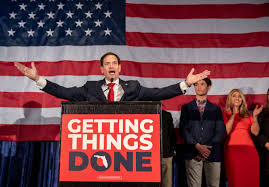 The U.S. indictment alleges that the unnamed "U.S. Senator 1" took part in meetings at a private residence and a hotel in Washington, D.C., to discuss Venezuela — including at least one instance where the senator was poised to meet with Trump to discuss Venezuela the next morning. That senator isn't identified in the indictment or the civil complaint. But several news outlets are noting that Rivera has long been a close friend of Sen. Marco Rubio of Florida. The PDV USA court filings give several insights into Rivera's activities, drawn from depositions and discovery of evidence in the case. For one thing, the company alleges that Rivera doled out millions of dollars to Nuhfer and other associates, in what were termed payments to subcontractors.
From the civil complaint: "These associates and purported subcontractors include Raul Gorrín, a billionaire Maduro supporter who was indicted in the United States for his role in a massive money laundering and bribery operation, Hugo Perera, a convicted drug trafficker who is currently under criminal investigation [for the PDV contract] ... and Esther Nuhfer and her purported political consulting firm: Communication Solutions." PDV USA says it "had no knowledge of Interamerican's illicit conduct," alleging that its contract isn't enforceable because it was based on a "sham." Providing some insight into how the Justice Department might have developed part of its case against him, Rivera said during a deposition related to the civil case this past summer that the FBI had informed him that "Mr. Perera has been an FBI informant since December 2019." In addition to his international troubles, Rivera also recently lost a long-running case against the Federal Election Commission, which accused him of making $75,927.31 in campaign contributions in the name of another person. He was ordered to pay a civil penalty of $456,000 in that case. 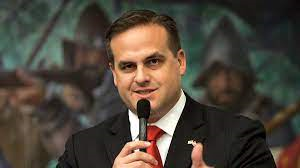 A South Florida political corruption case has tentacles reaching Republican operatives across Florida, including Data Targeting Inc., a Gainesville firm that's been a cog in the GOP machine for more than two decades. The scandal also extends to people tied to Associated Industries Inc., a powerful business lobbying firm in Tallahassee, records show. And on Friday, a Florida Department of Law Enforcement spokeswoman confirmed the agency is talking with the State Attorney's Office in Seminole County about a possible review of the allegations in the Central Florida leg of a "ghost" candidate scheme. Frank Artiles, the former Republican state senator who's expected to stand trial Aug. 30 on several felony charges stemming from accusations he paid an old friend to enter a South Florida state Senate race, earned $90,000 as a consultant by Data Targeting. That firm was also intimately involved in other campaigns, including that of District 9 state Sen. Jason Brodeur, who represents part of Volusia County. A no-party-affiliation ghost candidate also ran on a liberal platform in Republican Brodeur's race, siphoning votes from his Democratic opponent. The making of a ghost candidate: PAC chair helping ghost candidate in Brodeur race got $4,000, had 'no responsibilities' Data Targeting also is linked to the curious 2018 reelection of Sen. Keith Perry, R-Gainesville, where GOP operatives propped up an independent ghost candidate who'd previously run before as a Democrat — a race that foreshadowed what happened in 2020. Investigative documents made public last week by the Miami-Dade State Attorney's Office, suggest Data Targeting Inc. president and CEO Pat Bainter played a role in the three state Senate races that included ghost candidates. Bainter has not been charged with a crime. Investigators have also gathered evidence tying Tallahassee pollster Ryan Tyson and political consultant Alex Alvarado to two political committees that funneled large sums of dark money into the ghost candidate campaigns in state Senate districts 9, 37 and 39. Tyson is a former vice president of political operations at Associated Industries of Florida who continues to work as a contractor for them. Neither Tyson nor Alvarado has been charged with a crime. Bainter did not return a message last week from a USA TODAY Network-Florida reporter seeking comment. Tyson also could not be reached for comment. Alvarado declined comment. The Miami-Dade State Attorney's Office would not comment on whether it is limiting its probe to Artiles, while the U.S. Attorney's Office in Tampa — which has been talking to former Seminole County Tax Collector Joel Greenberg about possible criminal activity involving Florida U.S. Rep. Matt Gaetz and others — hasn't made clear whether they are also investigating the ghost-candidate scheme. Data Targeting has helped countless Republicans, including Gov. Ron DeSantis, Gaetz and U.S. Rep. Michael Waltz, assume and maintain power. The GOP has controlled the governor's mansion, the state House of Representatives and state Senate every year this century, despite the fact that registered Democrats still outnumber Republicans statewide. Data Targeting offers candidates a one-stop shop for all things campaign-related, and in 2020 was particularly involved in state Senate races that threatened to tilt the scale of power toward Democrats. In 2019 and 2020, when it appeared Democrats had a chance to win a majority of the Senate's 40 seats, the Florida Republican Senatorial Campaign Committee — run by Senate President Wilton Simpson — spent more than $7 million on consulting, polling and advertising at Data Targeting. The Senatorial committee put nearly $326,000 into the highly competitive District 9 race Brodeur narrowly won in 2020. That campaign featured similarities to two South Florida Senate races Republicans also won — including the race that spawned criminal charges against Artiles. All three of those races involved no-party ghost candidates who didn't campaign but found themselves on the receiving end of nearly identical dark-money ads designed to steer likely Democratic-leaning voters to the ghost candidates. The ads promised to fight for health care and climate change, among other things. The scheme worked like a charm. In Senate District 37, a Miami seat, Republican Ileana Garcia upset incumbent Democrat Jose Javier Rodriguez by 32 votes. Alex Rodriguez — the ghost candidate Artiles is charged with paying off — didn't campaign and ducked media requests. He received nearly 6,400 votes. Along with Artiles, Alex Rodriguez is facing felony charges, accused of taking more than $44,000 from Artiles to run as a sham candidate. In District 39, another South Florida seat, Ana Maria Rodriguez won with nearly 56% of the vote over Democrat Javier Fernandez. Celso Alfonso, an 81-year-old who didn't campaign, pulled in more than 3,600 votes. And in District 9, Brodeur defeated Democrat Patricia Sigman. The district includes all of Seminole and a portion of southwest Volusia counties. Brodeur received 50.3% of the vote. The ghost candidate who never campaigned, Jestine Iannotti, received nearly 5,800 votes. The ghost candidates in all three races received dark money from a mysterious source who funneled the cash through two Florida political action committees. "(The Florida Department of Law Enforcement) is currently in discussion with the 18th Judicial Circuit, Office of State Attorney Phil Archer, concerning a request for a formal review of the allegations," Dana Kelly, an agency spokeswoman, said on Friday. In April 2017, Artiles — a state senator in his first year after having served six years as a state representative — went on an alcohol-fueled rant in which he used racist, sexist terminology in front of two other lawmakers. After news broke, he took responsibility. "I am accountable and, effective immediately, I am resigning from the Florida State Senate," he wrote, later saying he intends to take time for "personal reflection and growth." About the same time, reporters discovered he had paid a Hooters "calendar girl" and a Playboy model for consulting, using funds out of his own political committee. The women had no previous political experience. Fast forward to 2020. Artiles signed a contract with Data Targeting to work for $15,000 per month plus expenses for six months consulting on contested state senate races in Miami-Dade County, records released by the 11th Circuit State Attorney's Office show. Toward the beginning of Artiles' service, he submitted an expense item that the Data Targeting CFO, Lance Gardner, questioned in an email to Bainter. "Is this good?" Gardner wrote. "There's a line item for $4,000 for 'research'?" Bainter responded: "It is..." Artiles, who called his business Atlas Consultants LLC, had contacted Alex Rodriguez — an old acquaintance, not the ballplayer — via Facebook Messenger. After arranging a meeting at Artiles' Palmetto Bay residence, Artiles promised Rodriguez $50,000 to put his name on the ballot as an independent state Senate candidate, Miami-Dade prosecutors charge. Republican incumbent Keith Perry faced a serious challenge from Democrat Dr. Kayser Enneking, a University of Florida anesthesiologist.
In that one, Republican operatives helped a third candidate, Charles Goston, a Democrat who ran as an independent. Ultimately, Goston received more than 4,300 votes, more than double the 2,000-vote margin between Perry and Enneking. Enneking said the fliers used against Sigman in both her primary race and in the general election were similar to ones used against her, painting ghost candidates in both races as the Democratic establishment’s choice. “It was to appeal to people further on the left who thought Bernie Sanders had gotten screwed,” Enneking said in an interview last week. Gov. Ron DeSantis announced the suspension of a Miami-Dade county commissioner Tuesday in an executive order.
The governor’s office released a statement saying that Jose Angel Martinez, 64, would be suspended from his position as county commissioner for District 11. On Aug. 30, Martinez was arrested on charges for unlawful compensation and conspiracy to commit unlawful compensation. NBC affiliate WTVJ reported that the accusations stemmed from money Martinez took to help a supermarket owner and property owner who had issues with cargo storage containers, according to an arrest warrant. The owners were reportedly fined thousands of dollars for violating a county ordinance that kept properties under 10 acres from having such containers. To remedy this, the supermarket owner allegedly paid $15,000 to help with the fees while also pushing for a new amendment to allow properties under 10 acres in size to have one storage container, the warrant said. According to the Associated Press, the ordinance did not pass. WTVJ reported that Martinez’s attorneys said the charges were political due to Martinez considering a run for sheriff. However, the governor’s office said Martinez would now be suspended and replaced with someone appointed by DeSantis in the coming weeks. The governor's Executive Order of Suspension (22-215)prohibits Martinez from performing any official act, duty or function of public office Former Seminole County Tax Collector Joel Greenberg alleges far-reaching public corruption.9/11/2022 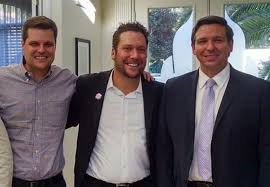 Former Seminole County Tax Collector Joel Greenberg alleged far-reaching public corruption, including granting no-work contracts on the public dime, when he spoke with investigators probing the “ghost” candidate scheme that helped Republican state Sen. Jason Brodeur win office in 2020. In the June 23 jailhouse interview with investigators from the 18th Circuit State Attorney’s Office and the Florida Department of Law Enforcement, Greenberg said under oath that he and others arranged for allies to receive lucrative contracts in exchange for political favors. The partially redacted transcript of the interview, released last week because it’s part of the criminal cases against three people involved in the 2020 “ghost” candidate scheme, reads like a who’s who of Central Florida elected officials and their political allies. The unredacted portion doesn’t mention U.S. Rep. Matt Gaetz, Greenberg’s close associate who is reportedly under federal investigation for sex trafficking. But Greenberg discussed plenty of other public figures, including people who worked for him during his turbulent four-year stint in the tax collector’s office, during the interview with Chief Assistant State Attorney Stacey Straub Salmons and two FDLE investigators. And he says someone close to Brodeur — whose name is redacted from the transcript because of the ongoing investigation — wields enormous power and influence. Greenberg described how the person, a Central Florida developer, directed lawmakers to file legislation intended to benefit their projects. During the nearly three-hour interview, Greenberg also told investigators that Brodeur “absolutely” knew about the scheme designed to siphon votes away from his Democratic opponent and that former St. Johns River Water Management District board chair John Miklos got “greased off” in exchange for help approving permits for developments in sensitive areas. The revelations come on the heels of a guilty verdict in the trial of Seminole County GOP Chairman Ben Paris, who was accused of arranging to put his cousin’s name on the financial contribution reports for independent state Senate candidate Jestine Iannotti. Though Iannotti did not actively campaign for the seat or fundraise, she and independent candidates in two other state senate races in 2020 were promoted as progressives in a mail advertising blitz. Iannotti and political consultant Eric Foglesong also face criminal charges for allegedly falsifying Iannotti’s campaign contribution reports. Brodeur told the Sentinel in June he had no knowledge that Paris, who was working for him at the Seminole County Chamber of Commerce in 2020, played a role in the scheme. He has not responded to multiple requests for comment from the Sentinel since Paris’ trial. Much of the interview transcript is redacted, indicating the investigation by the state attorney’s office and FDLE is ongoing. The name of at least one well-connected person is redacted in dozens of places.
Greenberg describes that person as “very close” friends with Brodeur and a frequent host for gatherings when the senator, Greenberg, Foglesong, Paris, former state Sen. Frank Artiles and others would talk about politics over drinks, including floating the idea of recruiting a third-party or independent candidate for Brodeur’s state Senate race. The group acted like “a little mafia,” Greenberg said, describing them as “extremely organized.” Greenberg said the person whose name was redacted from the transcript was trying to develop land in east Seminole County and had pushed lawmakers to file legislation that would have declared land within three miles of a state university campus open to urban development. “There were different legislators that he would know who would file bills on his behalf, pretty much,” Greenberg said. The 2018 bill failed and the developer is locked in a long legal battle with Seminole County, Straub Salmons noted. The developer fits the description of former state Rep. Chris Dorworth, who has repeatedly tried to gain approval for his large residential and commercial development, called River Cross, within Seminole County’s rural boundary. The failed 2018 legislation mentioned during Greenberg’s interview would have enabled the proposed development, which is within three miles of the University of Central Florida, to move forward. “Was it your understanding that that [legislation] was specifically because the land that [name redacted] hoped to develop that was that Seminole County area east of Oviedo moving towards Orange County, was so close to UCF that had the legislation passed, it would have been a benefit to [name redacted] and his development project?” Straub Salmons said. “Correct,” Greenberg replied. The CEO of the biggest power company in the US had a problem. A Democratic state senator was proposing a law that could cut into Florida Power & Light’s (FPL) profits. Landlords would be able to sell cheap rooftop solar power directly to their tenants – bypassing FPL and its monopoly on electricity. “I want you to make his life a living hell … seriously,” FPL’s CEO Eric Silagy wrote in a 2019 email to two of his vice-presidents about state Senator José Javier Rodríguez, who proposed the legislation. Within minutes, one of them forwarded the directive to the CEO of Matrix, LLC, a powerful but little-known political consulting firm that has operated behind the scenes in at least eight states. Rodríguez was ousted from office in the next election. Matrix employees spent heavily on political advertisements for a candidate with the same last name as Rodríguez, who split the vote. That candidate later admitted he was bribed to run. Hundreds of pages of internal documents – which are only coming to light now because Matrix’s founders are locked in an epic feud – detail the firm’s secret work to help power companies like FPL protect their profits and fight the transition to cleaner forms of energy. The Matrix saga illustrates the political obstacles policymakers and experts face as they attempt to cut climate pollution from the power sector, one of the biggest greenhouse gas contributors in the US. The ongoing clash between Matrix’s founder Joe Perkins, 72, and former CEO Jeff Pitts, 51, is exposing the firm’s decades of extensive influence peddling on behalf of utility clients. The issue extends to several states. Records obtained by Floodlight and the Orlando Sentinel show that Matrix consulted for FPL, as well as another Florida company, Gulf Power, and Alabama Power. Matrix affiliated groups have also worked to advance power companies’ interests in Arizona, Louisiana, Mississippi, Georgia, and in front of the Environmental Protection Agency, public records show. In Florida, Matrix’s work touched almost every level of politics, from influencing local mayoral and county commission elections to combating attempts to reshape the state constitution. In each of those cases, Matrix was working against politicians or policies fighting to curb the climate crisis by encouraging renewable power. Matrix employees had a Jacksonville journalist spied on after he wrote critically about FPL. And in 2020, Matrix even harnessed the power of the press for itself, when its employees acquired control of The Capitolist, a Tallahassee-based political news site which it used for favorable coverage, leaked records show. “I find this to be horrifying and undemocratic,” said Gianna Trocino Bonner, former chief legislative aide for Rodríguez, after reviewing some of the leaked documents. “It’s unfortunate that our process allows for something like this to exist without accountability.” Big power companies operate as monopolies with captive customers in much of the south-east US. They are supposed to be closely regulated, but their profits and unchecked political spending makes them some of the most powerful entities in a state. Howard Crystal, an attorney for the environmental group Center for Biological Diversity, said that US utilities are allowed monopoly power “because they are supposed to expand the public interest. “[But] now we have this incredible corruption and a reversal of that because they are using their advantage to hang on to power and undermine democracy,” he said. So far, there have been two criminal investigations into the campaign against Rodríguez and another Democratic state senate candidate, leading to charges against five people, though authorities have not accused Matrix or FPL of wrongdoing. In Florida, FPL and Matrix demonstrated how a utility and its consultants can work in tandem to resist clean energy reforms. FPL deployed lobbyists to the capital, while Matrix hired private investigators to dig for dirt and had operatives funnel dark money and order attack ads. Few examples are clearer than the case of South Miami. When the small south Florida city’s mayor helped pass an ordinance in 2017 mandating rooftop solar panels on new construction, a network of 10 FPL-aligned operatives mobilized to ensure his ouster. The team decided an effort to repeal the ordinance would probably fail. So they opted instead for “Mayor Stoddard’s electoral defeat and changing the makeup of the board”, according to a 2018 memo from Dan Newman, a Matrix contractor who was similarly involved in the campaign against Rodríguez. Along with a private investigator, the group delved into Stoddard’s past for episodes to weaponize against him, such as a South Miami commissioner’s claim on Facebook that Stoddard had forcibly kissed her. Documents show Matrix operatives arranged for the commissioner to record a robocall in which she called Stoddard “a creep”. Pitts at the time forwarded a draft of the script to two FPL executives. Newman in his memo also took credit for a Miami Herald story about the allegation. Meanwhile, Matrix-led non-profits funded a blizzard of ads against Stoddard, accusing him of using public money for “vendettas” and placing him alongside infamous sex offenders Bill Cosby and Harvey Weinstein. The plan ultimately failed, and Stoddard was re-elected. He has denied the allegations. “An organization that acts like a mafia should be treated like one,” Stoddard said. In a statement, Newman acknowledged managing the campaign against Stoddard and hiring a private investigator to look into the former mayor’s personal life. He said what he found was “deeply disturbing”. FPL did not respond to requests for comment by deadline. Matrix’s influence was felt on matters small and large, from Stoddard’s city of less than 12,000 to statewide fights over the Florida constitution. In 2019, when the electric utility industry was up in arms about a constitutional amendment to open up competition in Florida’s energy market, a Matrix-linked non-profit poured more than $10m into groups fighting it. Matrix also exerted political influence through the press, with its operatives acquiring control of a Tallahassee-based politics news site, The Capitolist. That gave Matrix consultants and FPL executives input on Capitolist stories. The site’s publisher, Brian Burgess, a former top spokesperson for past Florida governor Rick Scott, also suggested in emails that Matrix should lure prominent Florida journalists to a new site or buy local papers owned by media giant Gannett Company and then lay off most of the “clown reporters” to “inject content” into publications without anyone knowing who was “pulling the strings”. That proposal was forwarded to Silagy at FPL but never came to fruition. Burgess said he “never pitched nor solicited feedback from FPL executives on any story or business venture”, and FPL spokesperson Chris McGrath said acquiring a news organization would not have made sense as a business deal for FPL. Original story and more: click here Mario Alejandro Ariza and Miranda Green for Floodlight and Annie Martin for Orlando Sentinel
Which is the single most corrupt state in the US? Is it Illinois with its Rod Blagojevich bribery bonanza? Louisiana with its freezer-stuffing yet always reelected congressmen? California with its small-town, $700,000-salaried officials? None of the above, according to a new study. Florida tops them all -- by a wide margin actually -- based on a rock-solid statistic: the number of state officials actually convicted on federal public corruption charges since 2000. "Florida faces a corruption crisis that threatens the state's reputation, its economy and its ability to attract new jobs and capital," write the report's authors, Ben Wilcox and Dan Krassner. Alternatively, it could be the catalyst to attract a certain type of business that understands those wielding political power, locally and statewide, can be persuaded more easily. Wilcox and Krassner compiled the new report for Integrity Florida, a non-partizan group dedicated to reducing graft in the Sunshine State. The pair start by admitting that several other states have also laid claim to the coveted title of Most Corrupt in the U.S. -- most recently Illinois, where a University of Chicago study declared that the state is "leading the pack in corruption." But that report looked at federal data going all the way back to 1976, when the Windy City was still basically a haven of Al Capone-esque bribery minded mobsters. Wilcox and Krassner decided to look at more recent federal data. Sure enough, winnowing down federal corruption convictions to the past decade -- from 2000 to 2010, the most recent year the numbers have been released for -- reveals that Florida is the nation's graft capital.
On a year-by-year basis, Florida topped the country in that category five times since 2000, with just Texas and California coming close with three top years each. On an average year, an astounding 71 Florida officials are convicted of corruption charges. Of course Integrity Florida doesn't just want to point and laugh at Florida's bribery craze; the group offers five recommendations to fix the problems, including creating a statewide corruption tip line, giving the Florida Ethics Commission more power to launch its own inquiries and requiring top officials to report all major transactions from the previous year. The former Boca Raton mayor who was charged with public corruption for her financial ties to two of the city's largest commercial landowners pleaded guilty to misdemeanor charges: misuse of public office and failure to disclose voting conflicts. In an apology letter, Haynie said the residents of Boca Raton "should accept nothing less than the highest level of ethics from their elected officials." As part of her plea, the 65-year-old will serve no time in jail, be fined $1,050 in addition to having to pay court costs and be on probation for 12 months. During her year of probation, she may not seek elected office and must complete 100 hours of community service. She can then run again for any office thereafter. Dozens of Florida Corrections Officers have been arrested at facilities statewide, accused of profiting from the sale of contraband in prison and having sexual relationships with inmates. It comes at a time when staff shortages in Florida prisons are leading to dangerous conditions, more than $100 million in overtime costs, and even closures of facilities statewide. An officer at Holmes Correctional Institution told investigators he “wanted to make more money than his job as a correctional officer was paying him” so he brought in “tobacco, marijuana and cell phones.” He even delivered a “steak and shrimp dinner” to an inmate for his birthday. Corrections officers also accepted payments using Cash App, Western Union and Pay Pal, according to reports. A Columbia Correctional Institution officer received 97 wire transfers totaling $36,250.00 for cigarettes and cell phones. An officer at Appalachee Correctional Institution received 28 wire transfers for $12,000.00 from members of the same family. And an officer at the Northwest Florida Reception Center received 50 Cash App payments for more than $19,000.00. |
BLOGArchives
January 2025
Categories
All
|
